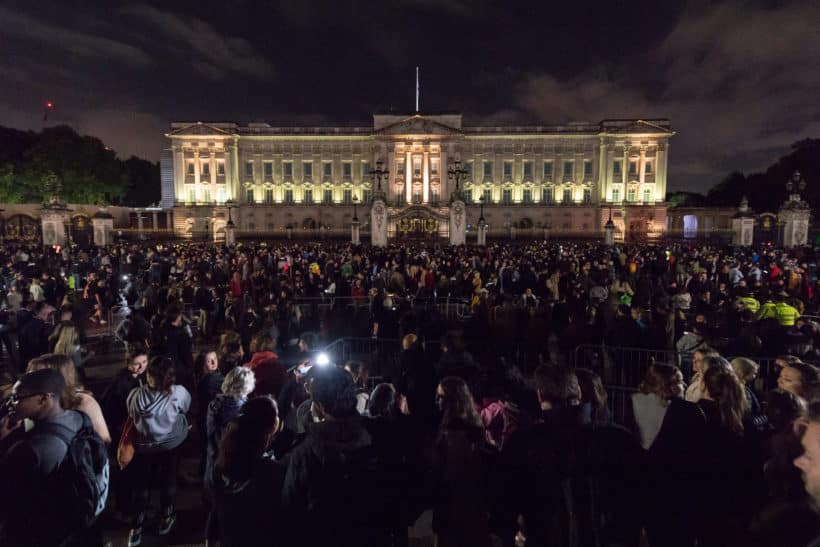
LONDON — The death of Queen Elizabeth II marks the start of a new era for the U.K. — but it’s one fraught with economic uncertainty and dampening national sentiment.
The queen, who at 96 was the U.K.’s longest-reigning monarch, died “peacefully” Thursday at Balmoral Castle, Scotland, hours after doctors expressed concern for her ailing health.
Thousands of Brits gathered outside Buckingham Palace in the pouring rain following the news to pay their respects.
The queen — whose 70-year reign spanned the aftermath of WWII, the winding down of Britain’s vast empire, the 2016 Brexit vote and a global pandemic — had come to symbolize a rare constant in a world of constant change. She is succeeded by her eldest son, who was proclaimed King Charles III hours after her death.
Her passing will be marked by a period of solemn ceremony, during which no government announcements will be made until after her funeral, which will be marked with a public holiday in approximately 10 days.
Suspension of normal politics
The suspension of normal politics comes just days after the U.K. installed its new prime minister Liz Truss, who was appointed Tuesday by the queen herself, in her final act of public service.
Truss enters 10 Downing Street at a time of unique flux for Britain, inheriting a country saddled with its worst economic outlook in years, a deepening energy crisis and increased inequality.
Hours before the queen’s death, Truss set to work outlining her plans to combat the U.K.’s cost-of-living crisis, unveiling a broad stimulus package designed to help Brits with energy bills, which have soared following Russia’s war in Ukraine.
It comes after a petition to boycott energy bills began gaining traction in the U.K.
The Treasury says the package, which is set to cost over £100 billion, will lower peak inflation by 4-5 percentage points. But economists have warned that the move could complicate the Bank of England’s already mammoth task of curbing record-high prices, by spurring spending on goods and wages.
The U.K. central bank delivered its biggest rate hike in 27 years last month, raising the benchmark to 1.75%, in a bid to bring down in inflation, which is currently the highest among G-7 nations at 10.1%. Investors had widely expected a further 50 basis point hike when the BoE meets next week, but some now say it will be forced to lift rates higher and more quickly.
Rising recessionary risks
The uncertain outlook comes as the country faces rising recessionary risks. Goldman Sachs warned last week that the U.K. could fall into recession in the fourth quarter of this year, echoing earlier forecasts from the Bank of England.
Briton’s are now bracing for a winter of hardship for both household and businesses.
The British pound has already been on a downward trajectory over the past several months, hitting a 37-year low of $1.1469 on Wednesday.
It piles pressure not only on Truss but also King Charles, Britain’s two new leaders, whose role it will be to rally public sentiment during a period of crisis. The pair are set to meet later Friday in London.
The monarchy also faces ongoing criticism for being outdated and absorbing public finances. Indeed, the cost and ceremony of the queen’s funeral will not be lost on a country in the grips of a cost-of-living crisis.
“King Charles has already got plans — we’ll see them over the coming months and certainly years — to slim down the Royal Family,” Andrew Roberts, a historian and professor at King’s College London, told CNBC Friday.
“We are facing a massive cost-of-living crisis in the U.K., obviously, and what people want to see is the Royal Family reflecting that,” he said, adding that there may be fewer royals participating in high profile events going forward.
Truss on Thursday called on Britain to “come together as a people” and support its new head of state.
“Queen Elizabeth II was the rock on which modern Britain was built,” Truss said in a speech outside No. 10. “With the passing of the second Elizabethan age, we usher in a new era in the magnificent history of our great country.”
She added that Britons should rally round Charles III to “help him bear the awesome responsibility that he now carries for us all,” she added. “God save the King.”